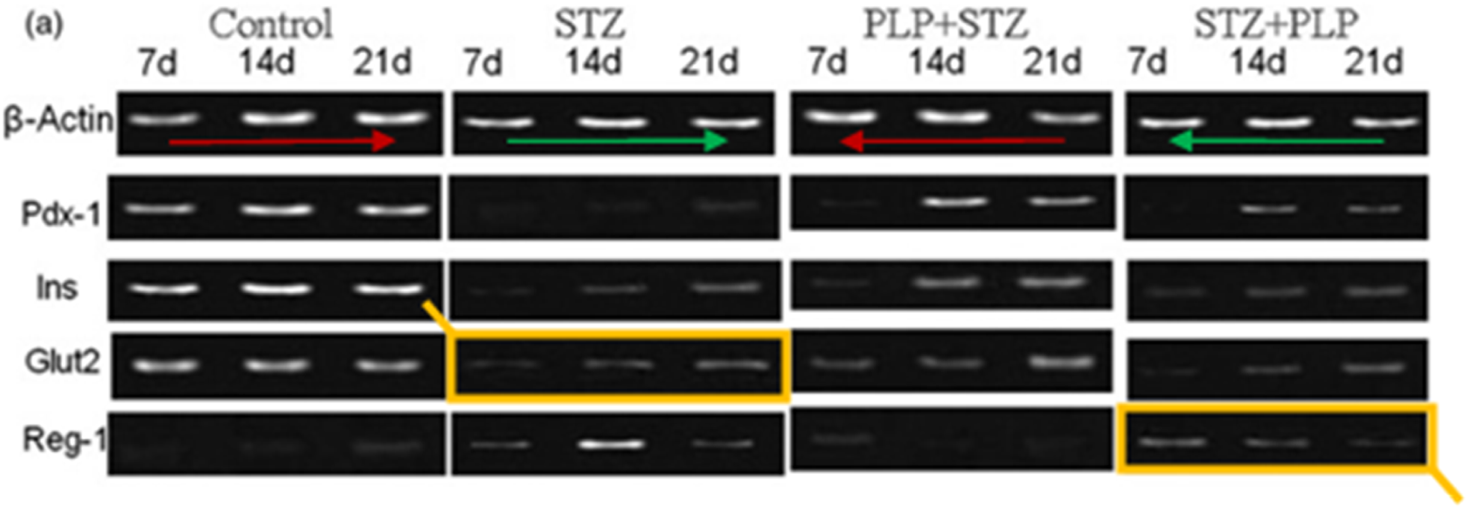Following publication, concerns were raised on the PubPeer platform regarding the reuse of certain images. Particularly, in the β-Actin bands in Figure 6A, two sets of PCR bands appear to be duplicated if reversed horizontally. Further, in the Glut2/Reg-1 bands in the same Figure 6A, two sets of bands appear to be duplicated as well. The authors failed to provide a satisfactory explanation during the investigation, which was conducted in accordance with Experimental Biology and Medicine’s policies. Therefore, the article has been retracted.
FIGURE 6

Reverse transcriptase-polymerase chain reaction analysis. (A) Expression of Pdx1, Insulin and Glut2 was eventually the same throughout the experimental period in the controls. With STZ treatment the expression of Insulin, Pdx1 and Glut2 was reduced marginally with Reg1 being upregulated also seen in STZ þ PLP group. There was a comparison in the expression of these genes between PLP þ STZ and controls by 21 days.
This retraction was approved by the Editor-in-Chief of Experimental Biology and Medicine. The authors received communication regarding the retraction.
EBM would like to thank the users on PubPeer for bringing the published article to our attention.
Summary
Keywords
pyridoxal 50 phosphate, Streptozotocin, islets, cytoprotection, insulinotrophic
Citation
EBM Editorial Office (2025) Retraction: Pyridoxal 5′ phosphate protects islets against streptozotocin-induced beta-cell dysfunction – in vitro and in vivo. Exp. Biol. Med. 249:10441. doi: 10.3389/ebm.2024.10441
Received
19 November 2024
Accepted
29 November 2024
Published
09 January 2025
Volume
249 - 2024
Updates
Copyright
© 2025 EBM Editorial Office.
This is an open-access article distributed under the terms of the Creative Commons Attribution License (CC BY). The use, distribution or reproduction in other forums is permitted, provided the original author(s) and the copyright owner(s) are credited and that the original publication in this journal is cited, in accordance with accepted academic practice. No use, distribution or reproduction is permitted which does not comply with these terms.
*Correspondence: EBM Editorial Office, ebm@ebm-journal.org
Disclaimer
All claims expressed in this article are solely those of the authors and do not necessarily represent those of their affiliated organizations, or those of the publisher, the editors and the reviewers. Any product that may be evaluated in this article or claim that may be made by its manufacturer is not guaranteed or endorsed by the publisher.